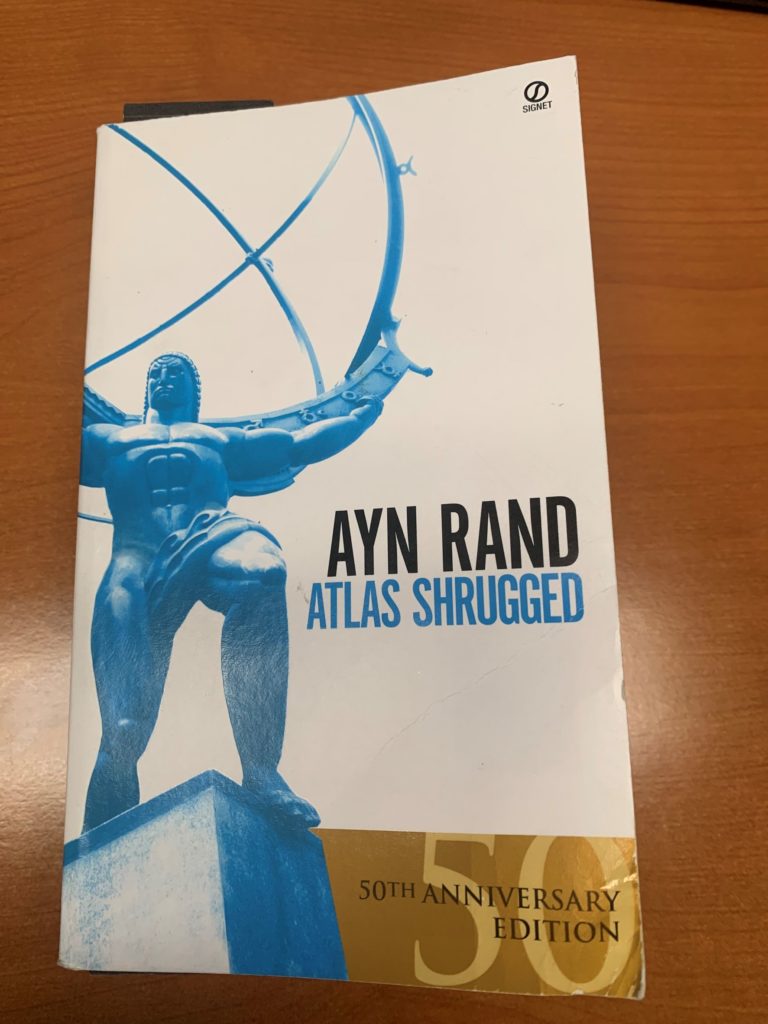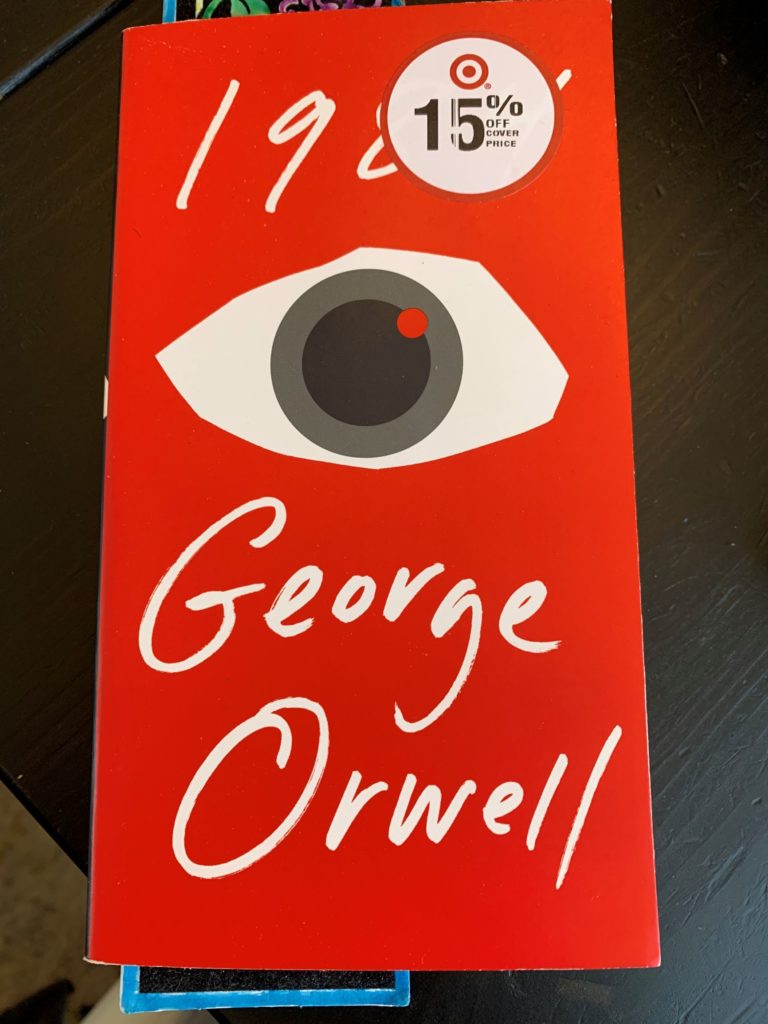If you pay attention to the title of each chapter, it kind of gives you insight into what the chapter is going to be about. This one is titled, “The Moratorium On Brains”. More on that in a minute.
The last chapter was titled “Miracle Metal” which was about forcing Reardon to give up his intellectual property. Reardon metal will be renamed Miracle metal. Makes sense. The chapter before that was titled “Account Overdrawn” which was the production threat that lead to the initiation of Directive 10-289. The next chapter is titled “By Our Love”… I wonder what that is going to be about?

As with all chapters in this long book, there are multiple things going on. The title of this chapter refers to the incident in the second half of the chapter. An entitled bureaucrat is travelling on a Taggart train to a political event. The train is stopped at a station in Winston, Colorado because of track conditions and derailment. The bureaucrat insists that this is some kind of political ploy and demands that the train continue.
Taggart employees afraid of changing rules, sliding scales of justice and unclear authority are afraid to do the right thing. Ultimately, the parties involved barrel to their death. Hence, some knew this was going to be the case, the others refused to believe that this was a real problem. Either way, the result was the same.
Normally, I would pick that part of the chapter to draw some analogy to current day issues. But, it is so easy to kill sitting ducks. That is why we have the phrase in the first place. Make no mistake, this is the major theme of the chapter. However, I am going to talk about the first part of the chapter instead.
We have heard a little about Ragnar Danneskjold. Apparently, he was a peer of Francisco D’Aconia in school and a general enigma. The word on the street is that he is also a fearless pirate. In this chapter Henry Reardon meets Danneskjold and it was rather interesting.
We grow up with the paradigm that the story of Robin Hood is just and correct. Danneskjold bills himself as the anti-Robin Hood. And his reason being is that we have our Overton Window in the wrong perspective. It’s not the rich stealing from the poor that is the problem, but the poor stealing from the rich.
Huh. I had never considered to perspective that the fairy tail is actually a classist agenda. I really think that there are points on both sides here. On one hand, there is no doubt that this country has a large welfare state. That is certainly stealing from the rich (the government that is). Does the rich actually steal from the poor?
I would contend, that both sides steal from the middle class. One, the middle class is the largest socioeconomic group. Two, the rich are the ones writing the rules (read loopholes) as well. They can afford to hire attorneys and accountants as well as build tax shelters on a routine basis. The poor of course have nothing to steal. The middle class has no time to fight, not enough assets to protect and not enough insight to know that they are getting screwed.
To make things worse, class warfare works perfectly. By keeping the middle class siding with one side or the other, they are so busy fighting in their hypnotic trance for the side they believe represents them that they are missing the fleecing that is happening.
For instance, the “Trump Tax Cut” that occurred in 2017. Without the SALT deduction (that was the deduction for mortgage interest), I now pay $10,000 a year more in federal income tax. I have heard business owners say that they now have a significant reduction in taxes (35 -> 21% on profits as well as a increased expensing allowances to lower profits). Nothing especially precludes me from becoming a business owner, but that doesn’t pivot on a dime. My point is, business owners are more likely to be high income earners, maybe rich. There are a lot more middle class home owners that fall into the strictly middle class ranges and the burden was shifted with that tax change.
End Your Programming Routine: I cannot be convinced that the rich do not pay their fair share. If we are only talking about income taxes maybe, but all the businesses certainly donate, pay, employ, etc. That is certainly fair share in my book. The truth of the matter is, as long as we all have equal access to take advantage of the rules, then who can really complain? Honestly, what I think the middle class needs to focus on is not getting rooked into picking a side when either choice looses.

Recent Comments